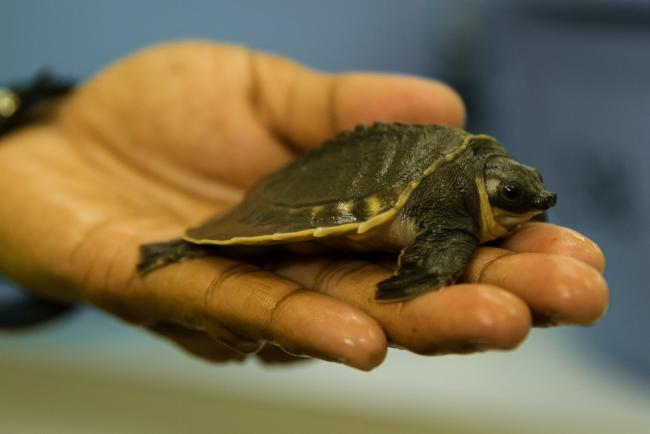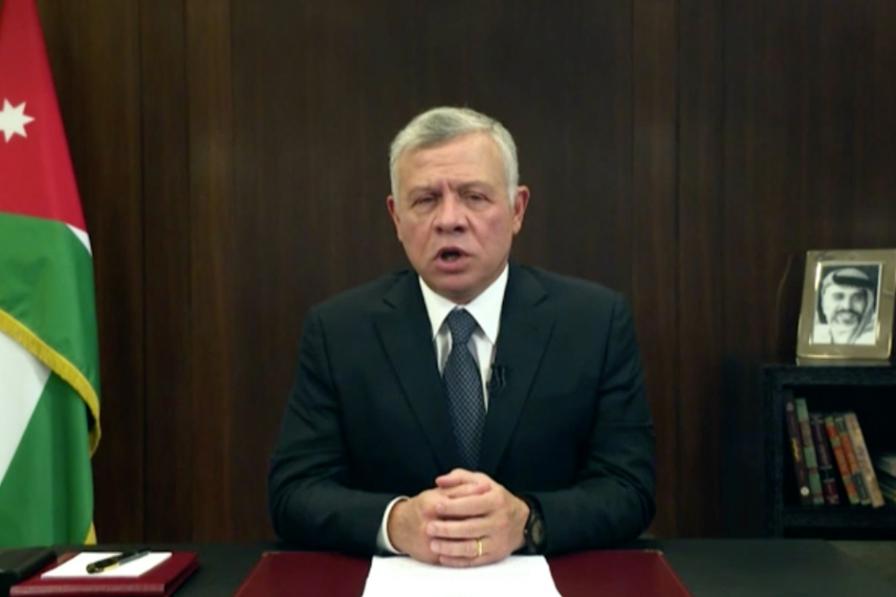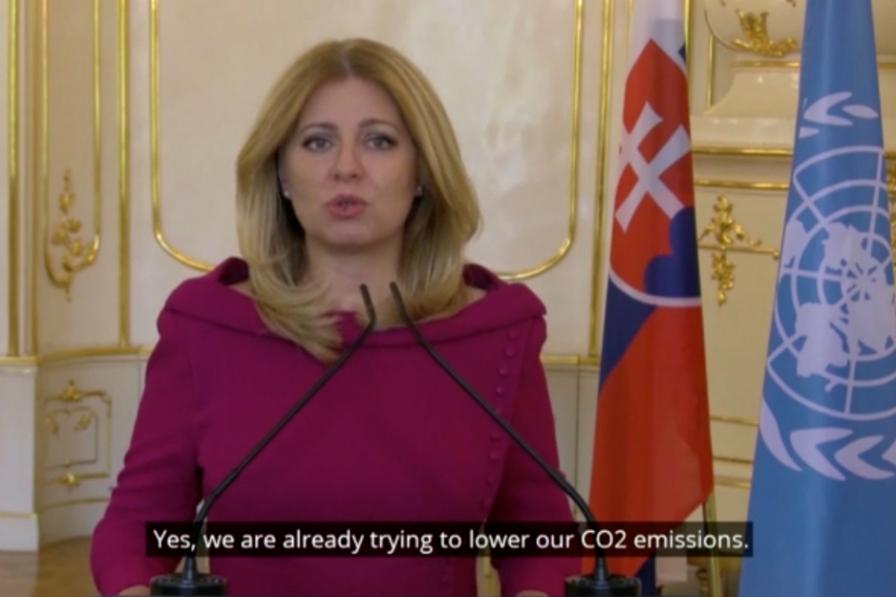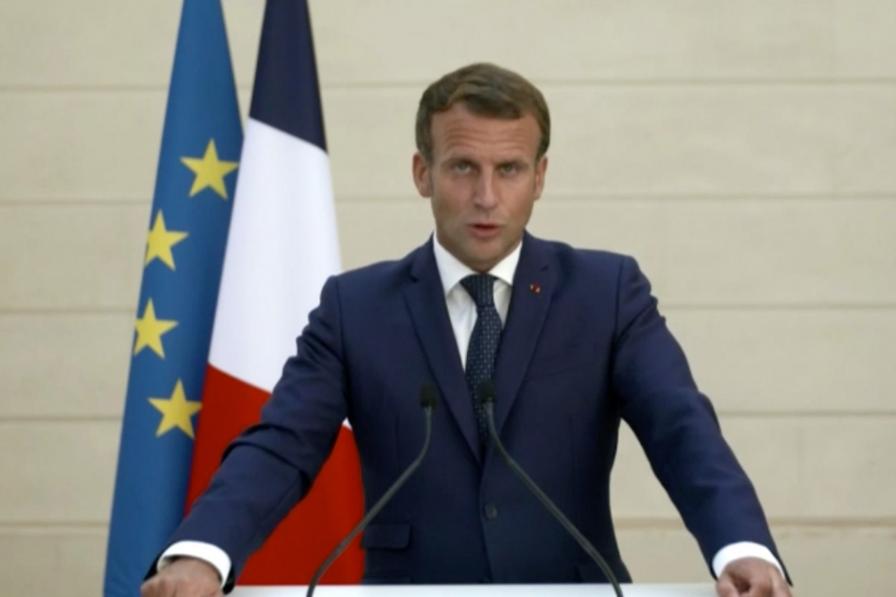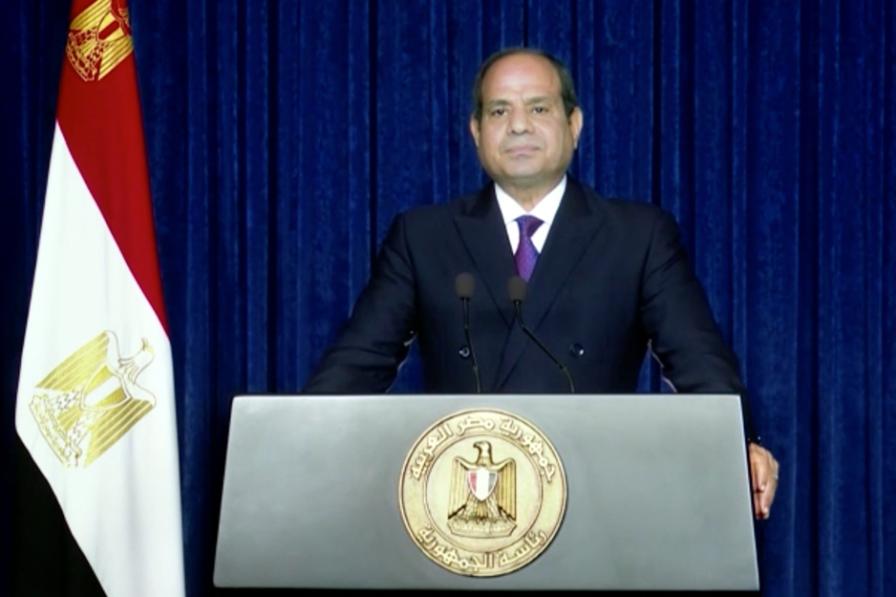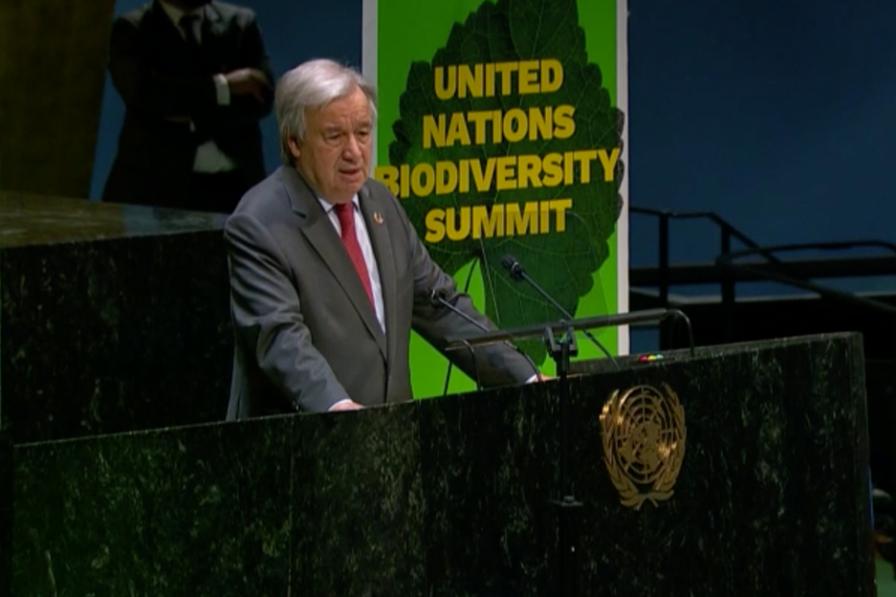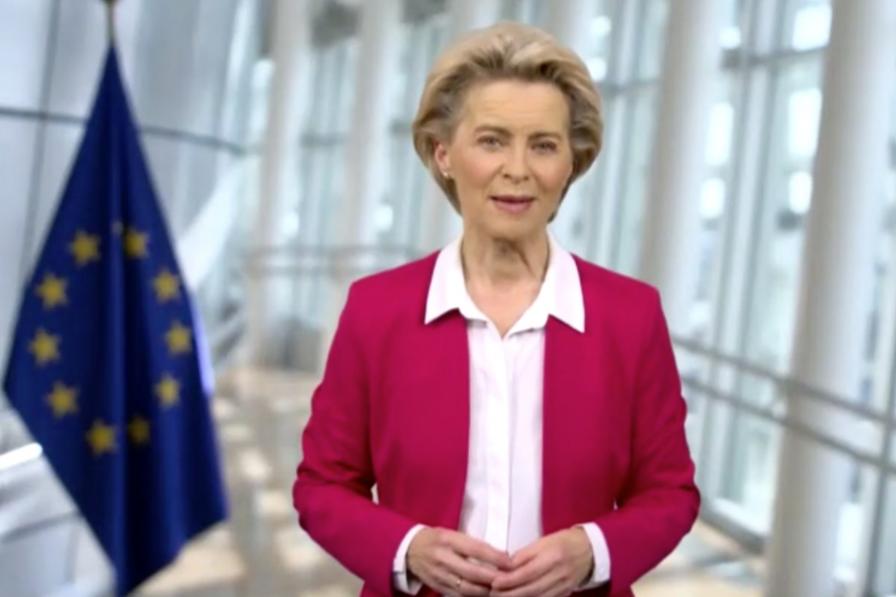Humanity is waging war on nature, António Guterres, UN Secretary-General, told Member States during the opening segment of the UN Summit on Biodiversity. One consequence, he said, is the emergence of deadly diseases such as HIV/AIDS, Ebola, and COVID-19. Underlining that degradation of nature is not purely an environmental issue, he said it spans economics, social justice, and human rights, and can result in geopolitical tensions and conflicts.
Guterres and other speakers at the Summit on Biodiversity, held in a socially-distanced UN Headquarters with Heads of State and Government and Ministers joining virtually, expressed concern that none of the 2020 Aichi Biodiversity Targets will be met. They pointed out that 13 million hectares of forest are lost, and one million species are at risk of extinction, every year. In the last 50 years, vertebrates have declined by 68%. They mentioned that if we continue down this path, food security, water supplies, and livelihoods will be threatened, as will our ability to fight diseases and face extreme events.
Urging an end to the “rape of nature,” Munir Akram, President of the UN Economic and Social Council (ECOSOC) said political will, not finance, is the key to contain economic greed and policy negligence. Volkan Bozkir, President of the UN General Assembly (UNGA), called on Member States to use the Summit to build political momentum towards the Post‑2020 Global Biodiversity Framework (GBF) to be adopted at the 15th meeting of the Conference of the Parties (COP15) of the UN Convention on Biological Diversity (CBD) to be held in Kunming, China in 2021. Kunming must do for biodiversity what Paris did for climate change in 2015, said Bozkir, by elevating the discourse to the mainstream and placing it firmly on the political agenda.
The Summit focused on the theme “Urgent Action on Biodiversity for Sustainable Development,” to highlight the urgency of action at the highest levels in support of a Post-2020 GBF that contributes to the 2030 Agenda for Sustainable Development (2030 Agenda) and places the global community on a path towards realizing the 2050 Vision for Biodiversity, “living in harmony with nature.”
The opening segment included a “fireside chat” between the heads of UN Development Programme (UNDP), UN Environment Programme (UNEP), the UN Convention on Biological Diversity (CBD), and the Intergovernmental Science-Policy Platform on Biodiversity and Ecosystem Services (IPBES). They described biodiversity as a “shock absorber,” and said the time to “pollute our way to wealth” has passed.
Statements by His Royal Highness Charles, the Prince of Wales, and a youth representative were followed by a plenary session, consisting of statements by Heads of State and Government and Ministers, which continued during lunch, with 48 Heads of State and Government and Ministers addressing the plenary.
Two Leaders’ Dialogues took place in the afternoon, on: addressing biodiversity loss and mainstreaming biodiversity for sustainable development; and harnessing science, technology and innovation, capacity building, access and benefit-sharing, financing and partnerships for biodiversity. The first Dialogue, chaired by German Chancellor Angela Merkel and Imran Khan, Prime Minister of Pakistan, included statements by 15 Heads of State and Government and Ministers. The second Dialogue was chaired by Ralph Everard Gonsalves, Prime Minister of Saint Vincent and the Grenadines, and Isabella Lövin, Deputy Prime Minister and Minister for International Development Cooperation of Sweden. It was addressed by 13 Heads of State and Government and Ministers.
The Summit convened on Wednesday, 30 September 2020 from 10:00 am - 18:18 pm EDT (GMT-4). Statements by Heads of State and Government and Ministers continued in a “spill-over event” after the meeting.
The Summit convened on Wednesday, 30 September 2020 from 10:00 am - 18:18 pm EDT (GMT-4). Statements by Heads of State and Government and Ministers continued in a “spill-over event” after the meeting.
